
Stories
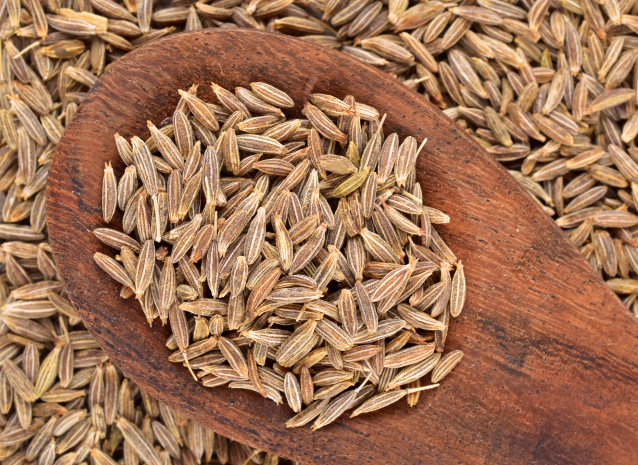
Cumin
Cumin seeds are a must have in the Somali kitchen. Known as kaamun in Somali, they are used in ground form or as whole seeds. Did you know that cumin seeds are an excellent source of iron? Research indicates that cumin seeds may also have anti-carcinogenic properties so it can help fight off cancer. Here are some ways you can use cumin seeds:
- Roast cumin seeds lightly just before using in cooking to release their full flavour
- Cumin beautifully complements the earthy flavours of lentils and beans
- Add a teaspoon of cumin seeds to roast vegetables to make them something special
- We’ve heard that a combination of cumin, black pepper and honey is considered an aphrodisiac in some parts of the world! But don’t blame us if this doesn’t work for you!
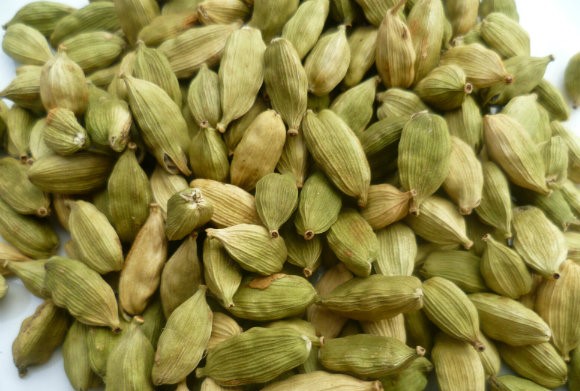
Cardamom
Cardamom is the world’s third most costly spice, after saffron and vanilla, and one of our favourite spices.
Cardamom pods are the fruit of a large ginger-like plant that is native to southern India. Cardamom works beautifully in milk-based desserts, cakes, and rice dishes.
We buy cardamom in pods and grind them finely just before they are used to preserve their flavour. The best way to release cardamom’s warm spicy-sweet flavour is to either dry roast them or fry lightly in a bit oil before cooking.
Ways you can use cardamom:
- The pod’s cover and seeds are used to spice tea, coffee, rice, vegetable, and meat dishes.
- Chew as a breath freshener and digestive aid after a meal.
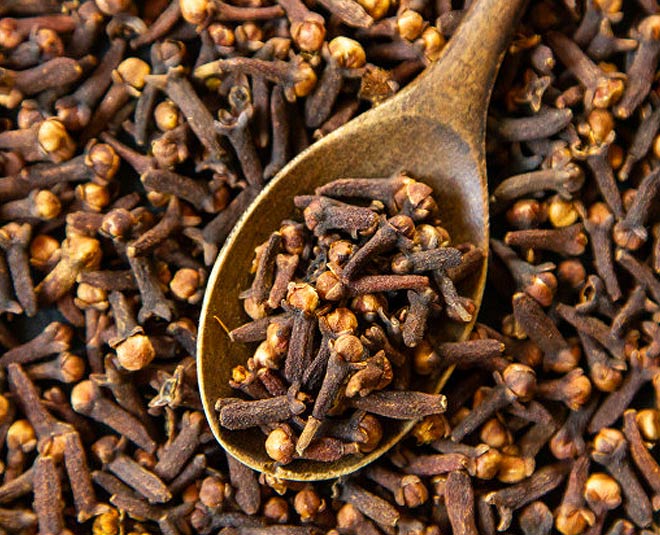
Cloves
Cloves, called qorfo dhegeyere in Somali, are used as a spice in cuisines all over the world. It imparts a warm, sweet and aromatic taste to food. Cloves are a strong spice so we use them sparingly.
Cloves are the unopened pink flower buds of the evergreen clove tree. The buds are picked by hand when they are pink and dried until they turn brown in colour.
Cloves grow in Indonesia, India and Sri Lanka. Zanzibar, famously known as the Spice Island, is one of the world’s largest exporters of cloves.
Cloves are also used to relieve toothache as they have a numbing effect. Cloves also work as ant repellent!
To get a fragrant and natural room freshener pierce an orange with cloves until it is completely covered and place on a bowl.
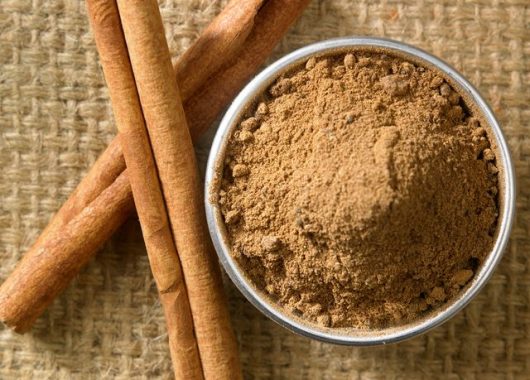
Cinnamon
Cinnamon (qorfe or qorfo dhaadher in Somali) is the bark of a tree that is used in sweet and savoury dishes. It is usually lightly fried to release the aromatic oil that gives cinnamon its unique flavour. Cinnamon is added to rice dishes and sweets.
Cinnamon is a must have spice in chai tea. It is believed to improve the digestion of fruit, milk and other dairy products.
Ways you can use cinnamon:
- Boil with milk and honey for a delicious drink just before bed
- Add ground cinnamon to any curry to add a sweet taste
- Combine cinnamon and cardamom to tea for a flavoursome chai.
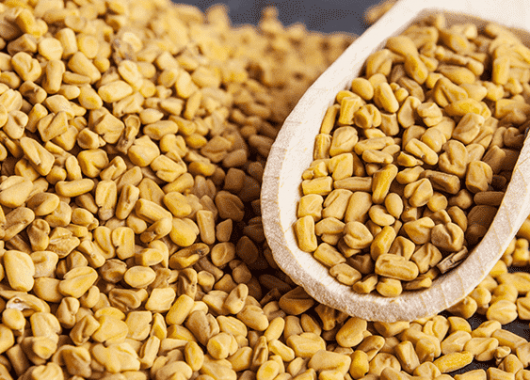
Fenugreek seeds
Recent studies have shown that fenugreek helps lower blood glucose and cholestrol levels, and may be an effective treatment for both type 1 and 2 diabetes. It is also being studied for its cardiovascular benefits.
It is reported the Prophet Muhammad (s.a.w) once said: “If my people knew what there is in fenugreek, they would have bought and paid its weight in gold.”
Imam Ibn Qayyum al Jawziyya (1292–1350 CE / 691 AH–751 AH), a famous Islamic jurist states in his book Healing with the medicine of the Prophet that fenugreek relieves coughing, dryness, asthma, hard breathing and increases the sexual drive. He also advised that when the hair is washed with it, it will make it curly and combat dandruff!
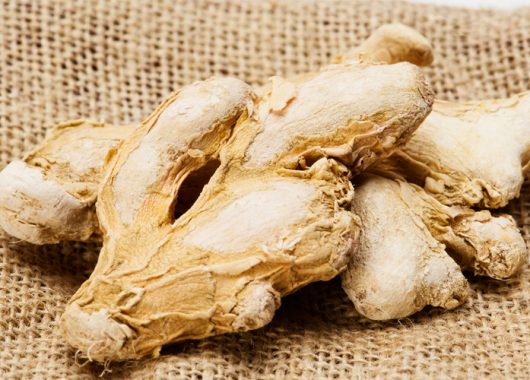
Dry ginger
Confucius and Pliny praised it, Nostradamus included recipes for wine and ginger preserved in honey and the Qur’an speaks of a fountain of ginger flavoured water in Jannah [Paradise].
Ginger (zanjabil in Arabic and sinjibiil in Somali) is a hot, fragrant spice that is used to flavour food and drink. Fresh ginger has a zesty flavour that complements curry well.
Dry ginger is ground into powder and used to spice chai tea and coffee. Ginger tea is also said to be great for colds, stomach aches, as well as for nausea and vomiting.
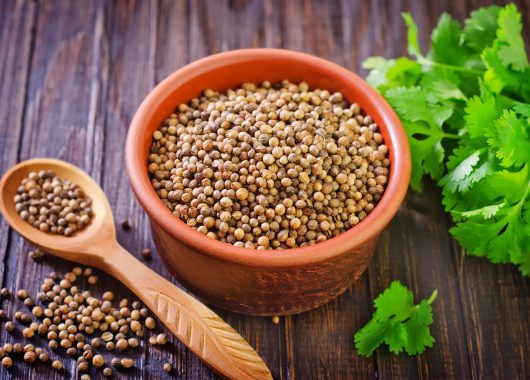
Coriander seeds
Whole coriander seeds (kabsar in Somali) are fragrant with a mild citrus flavour. Coriander seeds can be used whole or lightly toasted and ground to blend with other spices for savoury dishes.
In the Somali kitchen we roast the seeds and grind them. Coriander seeds are a key ingredient in spice mixes for rice and meat dishes. Buy whole coriander seeds instead of coriander powder since the latter loses its flavour more quickly. Ground coriander will keep for about four to six months, while the whole seeds will stay fresh for about one year.
Coriander is used as a traditional medicine in many parts of the world. In India, it is used for its anti-inflammatory properties. In the United States, coriander has recently been studied for its cholesterol-lowering effects. It also has anti-bacterial properties that research has shown to be effective in managing salmonella.
It is reported that the Prophet Muhammad (s.a.w) said, “Make yours the seed of coriander, for it is a cure of all diseases except swelling [cancer], and that is a fatal disease.”
Don’t take our word for it, but we’ve heard that the oil of coriander is a treatment for baldness and scalp problems, and prevents grey hair! The smoke of the burning seeds is an insect repellent.
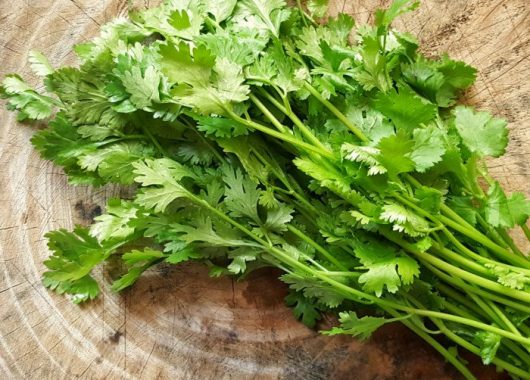
Coriander leaves
Coriander leaves are also known as cilantro. In Somali we call it kabsar caleen. Though it grows from coriander seeds, cilantro has a distinct flavour and can’t be substituted for the seeds. Cilantro works well with almost any kind of dish, but we particularly like using it with meat and vegetables. Use the coriander stalks and roots as they add a deeper and more intense flavour to your food.
Store in the fridge in a glass of water. You can place it in ice cube trays covered with water to add to what you are cooking.
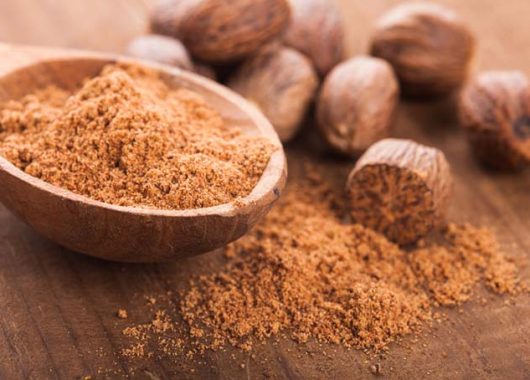
Nutmeg
Nutmeg (joss in Somali) has a warm, spicy sweet flavor. Mace, which has a more delicate flavour, is the dried lacy membrane from around the nutmeg seed. In the Somali kitchen we use both spices in rice and sweet dishes.
In the middle ages nutmeg was one of the most valuable spices. In the England of that time, a few nutmeg nuts could be sold for enough money to enable financial independence for life. In the fourteenth century, half a kilogram of nutmeg cost as much as three sheep or a cow!
In large doses, raw nutmeg has psychoactive effects and can induce convulsions, palpitations, nausea, and can be fatal. So please show some respect for this spice!
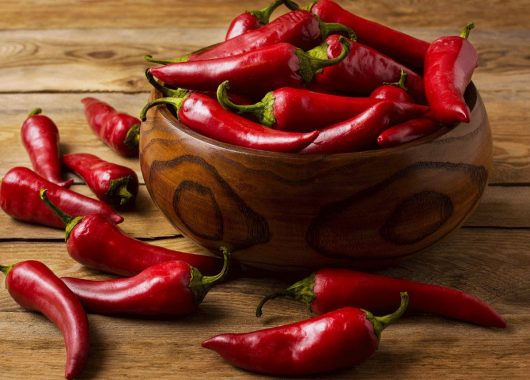
Chilli
Chilli (basbaas in Somali) gives a wonderful kick to a dish, but did you know that they also contain high amounts of vitamin C and B, potassium, magnesium and iron?
Hot tip: If the chilli is too hot for you don’t reach out for water! You will cool down much faster if you sip some or yoghurt.
Chilli peppers originated in the Americas and were brought to Europe by Christopher Columbus.They were introduced to the Indian sub-continent by Portuguese traders. From India, the chilli travelled back to Europe via Turkey and Hungary where a form of it – paprika – is practically the Hungarian national emblem!
Remember to pick the variety of chillies carefully. The colour and size of chillies are not indicative of the intensity of their flavour. The hottest part of the chilli is the membrane and the seeds. You can remove these to reduce the heat.
In Somali cuisine, we usually don’t add chilli to the dish, but serve on the side as a condiment such as the popular shidni sauce.
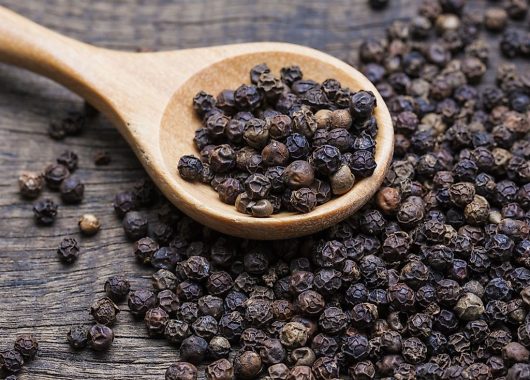
Black pepper
Black pepper (filfil in Somali) is used in all types of savoury, main dishes, soups and salads.
Black pepper is the world’s most traded spice! In ancient times, pepper was so valuable that it was often used as currency.
The word “pepper” is ultimately derived from the Sanskrit word for long pepper – pippali.
Black peppercorns were found stuffed in the nostrils of Ramesses II, placed there as part of the mummification rituals shortly after his death in 1213 BCE.
Black pepper, is widely used in traditional Indian medicine and as a home remedy for relief from sore throat, throat congestion, and cough.
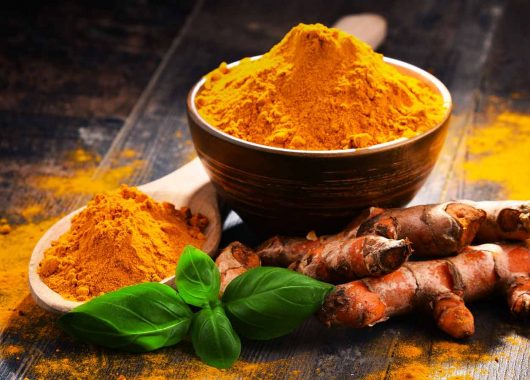
Turmeric
The word turmeric comes from the Arabic word for the spice – kurkum. In Somali we call it huruud. Turmeric is the root of the turmeric plant that is used as a spice, usually in a dried form.
For Somalis, turmeric is not just a spice, it is also a much favoured beauty product! It’s a common site in Somali households to see ladies eerily covered in yellow turmeric paste.
The mix of ground turmeric powder and a bit of water is said to cleanse the skin and give it a natural glow.
Did you know that it is turmeric that gives mustard its bright yellow colour or that it is a prime ingredient in the famous British Worcestershire sauce?
Medicinally, it is said that turmeric aids in digestion problems, arthritis pain, menstrual pain, heartburn, gallstones, and stomach ulcers.
Ways to use turmeric:
- Add a teaspoon to meat and vegetable dishes to give them a warm, earthy flavour. Use small amounts of turmeric as it is extremely pungent and gets stronger when cooked.
- Substitute turmeric for saffron as a natural food colouring.
- And of course, if you are a Somali, slather some on your face!
